Sean-Kelly Palicki
GA-SVM for Evaluating Heroin Consumption Risk
Mar 23, 2021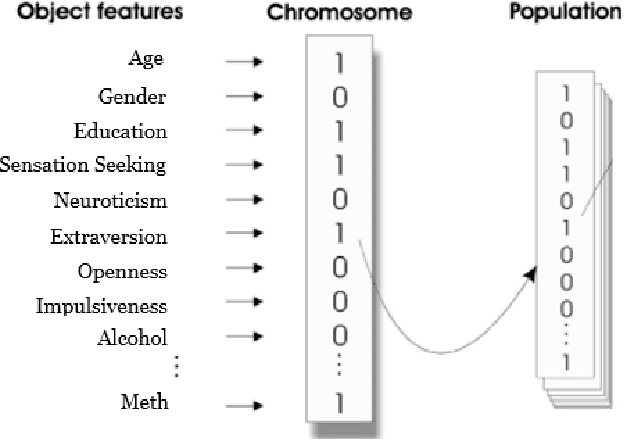
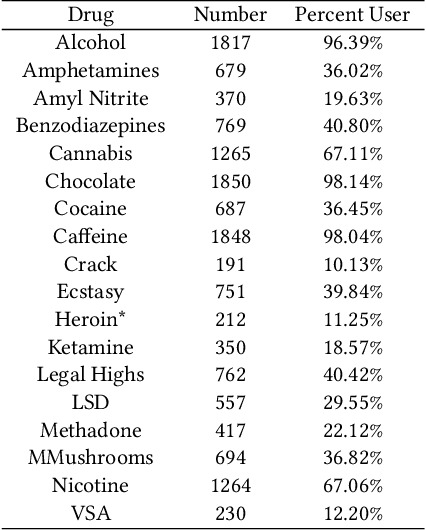
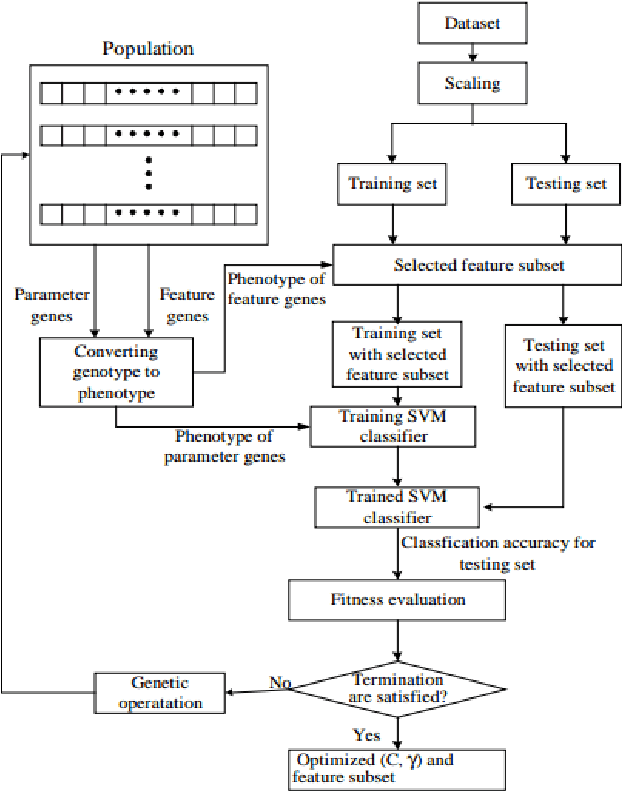

Abstract:There were over 70,000 drug overdose deaths in the USA in 2017. Almost half of those involved the use of Opioids such as Heroin. This research supports efforts to combat the Opioid Epidemic by further understanding factors that lead to Heroin consumption. Previous research has debated the cause of Heroin addiction, with some explaining the phenomenon as a transition from prescription Opioids, and others pointing to various psycho-social factors. This research used self-reported information about personality, demographics and drug consumption behavior to predict Heroin consumption. By applying a Support Vector Machine algorithm optimized with a Genetic Algorithm (GA-SVM Hybrid) to simultaneously identify predictive features and model parameters, this research produced several models that were more accurate in predicting Heroin use than those produced in previous studies. Although all factors had predictive power, these results showed that consumption of other drugs (both prescription and illicit) were stronger predictors of Heroin use than psycho-social factors. The use of prescription drugs as a strong predictor of Heroin use is an important though disturbing discovery but that can help combat Heroin use.
Transfer Learning Approach for Detecting Psychological Distress in Brexit Tweets
Jan 25, 2021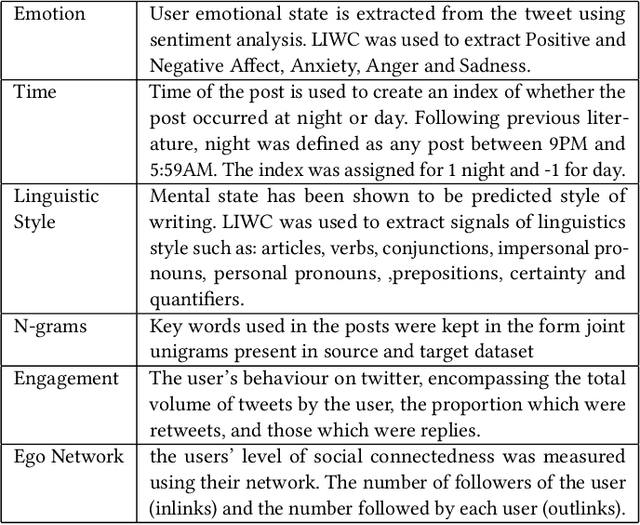
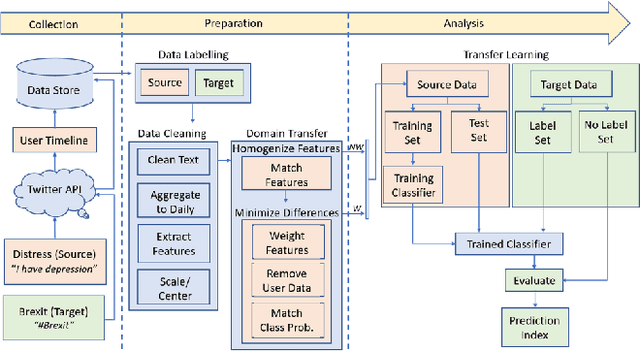
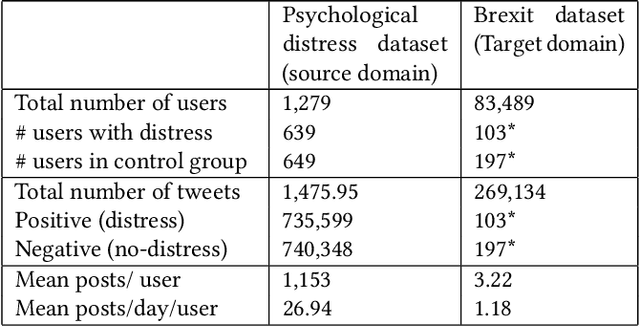
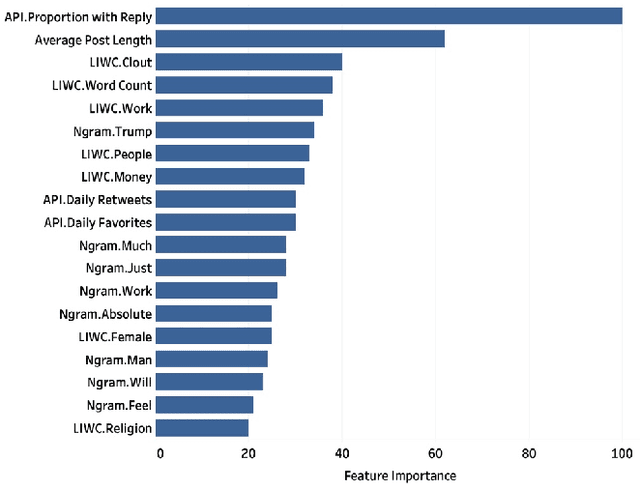
Abstract:In 2016, United Kingdom (UK) citizens voted to leave the European Union (EU), which was officially implemented in 2020. During this period, UK residents experienced a great deal of uncertainty around the UK's continued relationship with the EU. Many people have used social media platforms to express their emotions about this critical event. Sentiment analysis has been recently considered as an important tool for detecting mental well-being in Twitter contents. However, detecting the psychological distress status in political-related tweets is a challenging task due to the lack of explicit sentences describing the depressive or anxiety status. To address this problem, this paper leverages a transfer learning approach for sentiment analysis to measure the non-clinical psychological distress status in Brexit tweets. The framework transfers the knowledge learnt from self-reported psychological distress tweets (source domain) to detect the distress status in Brexit tweets (target domain). The framework applies a domain adaptation technique to decrease the impact of negative transfer between source and target domains. The paper also introduces a Brexit distress index that can be used to detect levels of psychological distress of individuals in Brexit tweets. We design an experiment that includes data from both domains. The proposed model is able to detect the non-clinical psychological distress status in Brexit tweets with an accuracy of 66% and 62% on the source and target domains, respectively.
 Add to Chrome
Add to Chrome Add to Firefox
Add to Firefox Add to Edge
Add to Edge